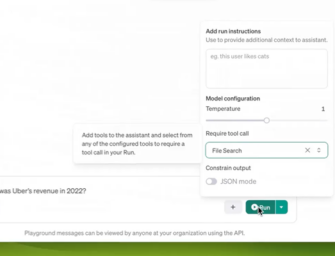How Voice Samples Collected from WhatsApp in Brazil May Help Create an Audio Coronavirus Test
 Brazilian biometrics startup Unike Technologies is joining the COVID Voice Detector project. The international coalition of researchers and businesses working building a vocal test for COVID-19 with artificial intelligence and machine learning is gaining a new source of data from Unike, which will collect audio samples and medical history from volunteers using the WhatsApp messaging platform.
Brazilian biometrics startup Unike Technologies is joining the COVID Voice Detector project. The international coalition of researchers and businesses working building a vocal test for COVID-19 with artificial intelligence and machine learning is gaining a new source of data from Unike, which will collect audio samples and medical history from volunteers using the WhatsApp messaging platform.
Unike Tech
The COVID Voice Detector project began as a partnership between enterprise voice assistant developer Voca.ai and Carnegie Mellon University. The idea is to use a suitably trained AI to analyze the probability that someone is infected with the coronavirus based on the sound of their voice and cough. The online test asks users for some basic health information and anything they know about if they may have been exposed. The volunteers then record some short audio clips of them talking, as well as a few coughs. The result is scored for lung health and the potential presence of COVID-19.
Building an AI that can handle the task requires a lot of data, and tens of thousands of people have already completed the online test. But, the potential scope of data collection becomes much larger if mobile platforms like WhatsApp can be used to complete the test. Unike handles that through a message-based version of the test on WhatsApp that gathers the same medical information and voice samples from any volunteer over 18, as well as a few facial images for verification. The encrypted data is stored the same way for research purposes. The research data collection essentially extends what Unike already does in terms of verification. Unike began as a contactless payment system but has evolved into a suite of tools using facial biometrics to handles transactions ranging from shopping trips to online learning identification.
Vocal Health
Though Unike merges the ideas of applying AI to vocal tests to detect COVID-19 and using WhatsApp as a public health tool during the ongoing pandemic, there is a lot of interest in both concepts. For instance, WhatsApp is being used by both the Indian and British governments to share information about the virus and current lockdown rules. Vocalis Health, coincidentally also an Israeli startup, has been collecting voice samples for its own work making a vocal diagnostic test for COVID-19 infection. The data is also part of a government project to track people recovering from the virus at home, both for data-gathering and to spot when they may need medical intervention. Meanwhile, Indian startup Salcit Technologies came out with kAs, Sanskrit for cough, a mobile app which also analyzes coughing sounds for potential COVID-19 infection.
If these projects achieve their goals in building a map of vocal biomarkers for determining if someone is infected, it could be a huge boon during the health crisis. People might catch earlier signs of the disease and see a doctor before the disease gets harder to treat, while those who may think they are infected could get some reassurance one way or another. That vocal tests at home are so much faster and cheaper also gives more flexibility to the healthcare system, which is straining in many parts of the world. Beyond COVID-19, this is the kind of data analytics that could enhance healthcare for all kinds of diseases with clues hiding in people’s voices.
Follow @voicebotai Follow @erichschwartz
The Audio Test for Potential Coronavirus Infection Built by Voice Tech Startups Has a New Home








